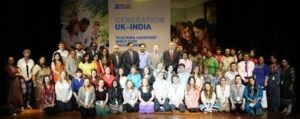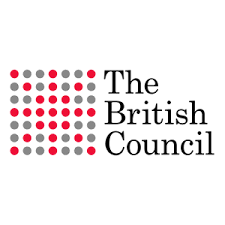NEW DELHI: The British Council, the UK international organisation for cultural relations and educational opportunities and various schools across India are organising a week-long series of events around school education.
The ‘Schools Week’ began with the launch of the British Council’s ‘Generation UK India Teaching Assistants Programme,’ followed by a School Award Ceremony at Hotel Kempinski. The latter half of the ‘Schools Week’ will witness stimulating discussions on ‘Unlocking a world of potential: Core skills for learning, work and society’ by industry experts.

Rob Lynes, Country Director British Council India and the Deputy High Commissioner, Andrew Soper addressed the teaching assistants and set the ball rolling for the dynamic programme. The programme is a step forward to the British Council’s consistent efforts to build stronger relationships based on mutuality and partnerships.
Generation UK India Teaching Assistants Programme aims to bring 25,000 young people from the UK to India to experience and understand a vibrant India.
Rob Lynes, Director India, British Council said, “The Generation UK-India Programme encourages internationalism and is a fantastic opportunity for young people from the UK to come and learn about India, one of the countries that will shape the 21st century. Their experience will help broaden their understanding and their ability to operate in diverse contexts and a multi-cultural environment. This will hopefully lead to stronger links and partnerships between the UK and India.”
The International Schools Award Ceremony was attended by Principals and teachers of over 250 schools. In the spirit of celebrating partnerships, these schools received the ‘British Council International School Award’.
The two themes that this conference hopes to address are, Theme Five ‘Re-vamping Teacher Education for Quality Teachers’, and Theme 12, ‘Comprehensive Education – Ethics, Physical Education, Arts & Crafts, Life Skills’. The thematic area two which focuses on the extending the reach and outcome of secondary and higher secondary education also seeks to find ways of assessing learning outcome in critical thinking and problem solving will also be a part of the discussions of this conference.
In today’s knowledge economy and unpredictably fast changing world, schools need to change and adapt the new pedagogical techniques to enhance the learning outcomes in the classrooms. National Policy in Education (NPE) drafted in 1986 and revised in 1992 also underlines the fact that to meet the challenges of time, education system should grow.
The Government of India is carrying out the largest consultation exercise ever currently as it moves towards drafting a new National Education Policy.
Generation UK-India programme aims at creating opportunities for young people in the UK to undertake:
Cultural immersion placements
Teaching assistantships
Work placements
Over the next five years the British Council will work with partners to support up to 25,000 young people and professionals from the UK to gain study and work experience in India.
Objectives of Generation UK-India Programme:
Promote India as a destination to gain study and work experience
Offer mutually beneficial placements that will give UK young people the chance to develop employability skills and support the internationalisation of Indian companies
Build a network of talented and ambitious young people from the UK who will form a Nurture future workforce ready to work with India and Indian companies
Build deeper, wider and stronger understanding between India and the UK



